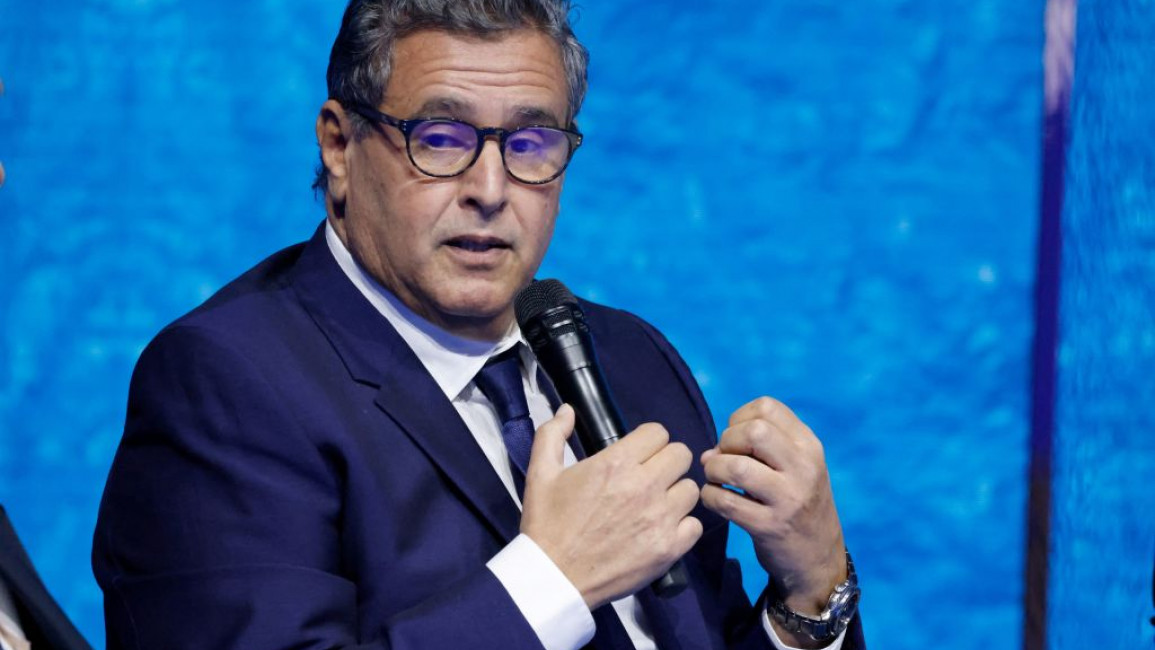Morocco PM's petrol business at centre of dispute
Soaring fuel prices in Morocco have placed billionaire petrol magnate Aziz Akhannouch -- who is also prime minister -- at the heart of a reignited debate about the conflict between business and politics.
For the first time since the war in Ukraine led to a global jump in crude prices, Akhannouch last week had to try to explain to parliament the rise at the pump to a record $1.46 per litre of unleaded fuel.
At that level, filling a car's tank would eat into a substantial chunk of income when the minimum monthly wage is barely $280 in the North African nation.
"Whatever the origin of soaring crude prices -- war, shortage, pandemic -- the distributors take their profits as if nothing happened," the weekly TelQuel protested.
Over a six-year period, fuel distributors' profits are estimated to have reached more than 45 billion dirhams ($4.6 billion), said an indignant Hussein El Yamani, head of the CDT trade union.
Akhannouch, whose National Rally of Independents party is considered close to King Mohammed VI's palace, took power in October after elections.
He pledged to improve conditions for citizens of Morocco, where entrenched social inequalities have been exacerbated by the Covid pandemic.
His position is not under threat because of the fuel controversy but he is pressured because of his role as the main shareholder in Afriquia, the country's market-leading petrol station operator.
At the parliamentary session, which also addressed higher food prices, lawmakers accused the government of "conflict of interests" and of profiteering.
The prime minister dismissed as "lies" the accusation of excessive fuel company earnings, which he said had been essentially unchanged since 1997.
He said 180,000 transport workers would be offered support to confront rising prices.
In March, the government announced more than $200 million to help out truckers who staged a national strike over spiralling fuel costs.
At about the same time, the central bank warned that inflation would rise to 4.7 percent this year, while growth would barely hit one percent.
As a result, household budgets are facing the greatest challenge since 2008, the kingdom's planning commission said.
Morocco relies on imports for the fuel needs of its roughly 37-million people.
For decades, fuel subsidies helped ensure stability but they were scrapped in 2015 over their high cost.
The government later vowed to ease the pain by making direct payments to the most needy families, but a system to distribute such payments was never put in place.
Akhannouch's ties to the fuel business have come under scrutiny before.
In 2018, a parliamentary report accused fuel distributors of "excessive" profits while complaints spread on social media about the high cost of living.
Akhannouch, then minister of agriculture, became a target symbolising collusion between the business and political worlds.
In response, Morocco's competition council in July 2020 reached an agreement under which Afriquia, Total and Shell would pay up to nine percent of their turnover in fines.
The sanctions were never applied, after King Mohammed fired the council head over accusations of procedural irregularities.
With the reemergence of conflict of interest allegations, there has also been criticism of the government's inability to restart operations at the kingdom's only oil refinery.
It has been in liquidation since 2018.
For the trade unionist El Yamani, the refinery must be either nationalised or a takeover facilitated.
Bringing the refinery back on line, he said, would lower by more than one dirham the cost of petrol per litre.
But until now, the government of Akhannouch has not reacted.



